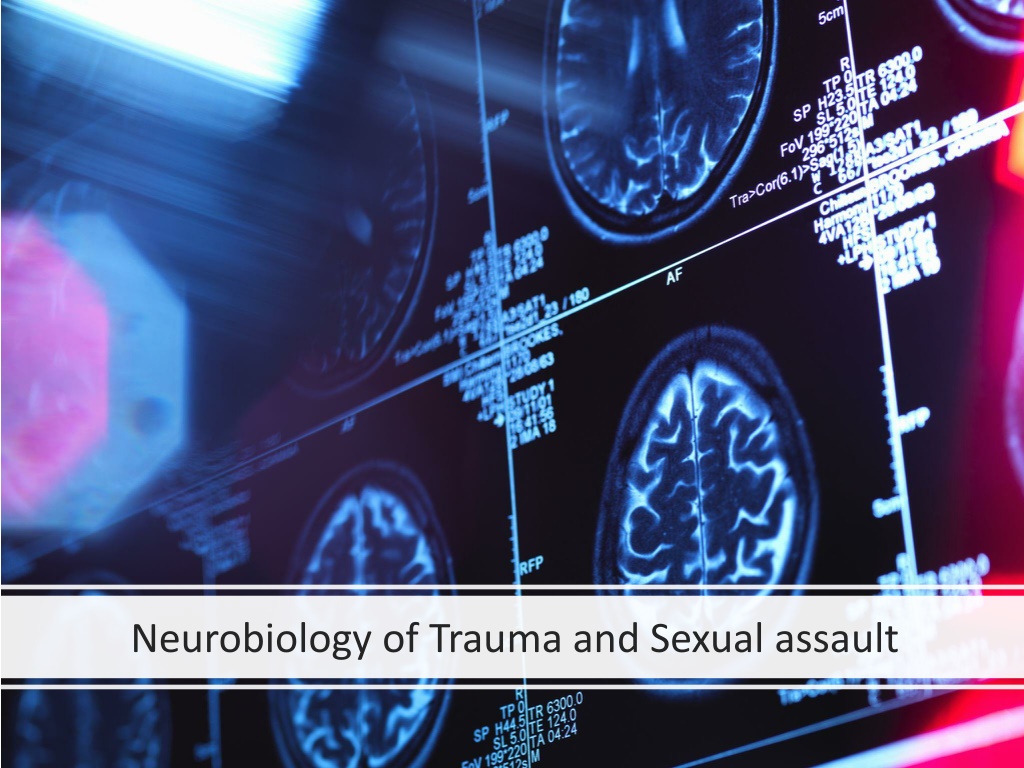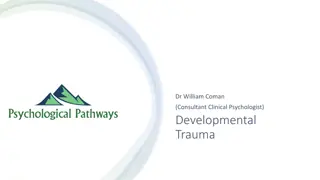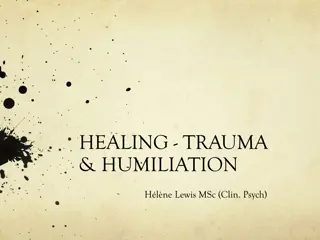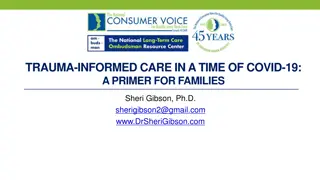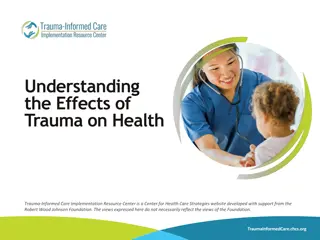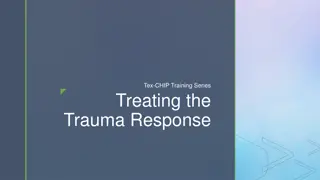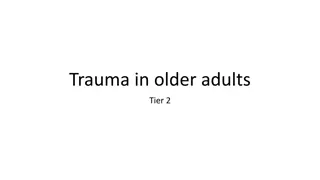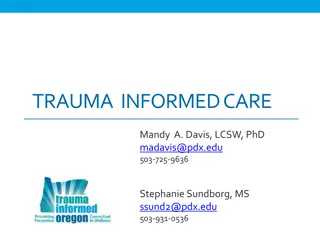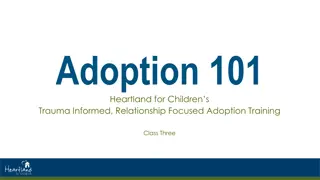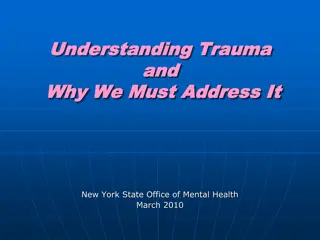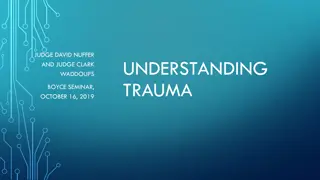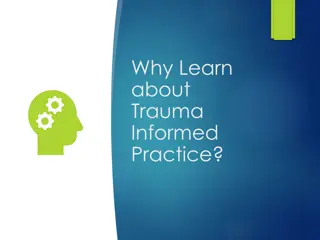Understanding Trauma and Its Effects on the Brain
Trauma is not just an event but a response that overwhelms individuals physically and psychologically. The neurobiological impact of trauma, such as alterations in physiology, cognition, and memory, can be profound. This content delves into how traumatic experiences can affect brain functions, specifically the Prefrontal Cortex, which plays a crucial role in decision-making, attention, memory processing, and emotional regulation.
Download Presentation

Please find below an Image/Link to download the presentation.
The content on the website is provided AS IS for your information and personal use only. It may not be sold, licensed, or shared on other websites without obtaining consent from the author. Download presentation by click this link. If you encounter any issues during the download, it is possible that the publisher has removed the file from their server.
E N D
Presentation Transcript
Definition of Trauma The psychological response to an event when they: Are experienced as physically or emotionally harmful or threatening Have lasting adverse effects of the individual s functioning and physical, social, emotional or spiritual well being. Center for Social Justice and Non-Violence
Trauma is not an event, but a response to an event that overwhelms people physically and psychologically. Dr. Peter Levine, Waking the Tiger, 1997
Traumatic Responses Can Alter Physiology Heart rate, respirations, dry mouth, knot in stomach, dilated pupils Affective (mood and emotion) responses Fear, helplessness, horror End Violence Against Women International
Traumatic Responses Can Alter Cognitive (thought) processing Memory fragmented, out of sequence Time distortion Increased confabulation Trauma memory and recall End Violence Against Women International
The Prefrontal Cortex Plans a person s response to complex and difficult problems Acts as an executive for the decision making process. Weaves past events to present experiences in order to make the best choices. Jim Hopper, Exploring the Nature of Traumatic Memory
Key Functions of Prefrontal Cortex Chooses where you focus attention and thoughts reality testing Holds thoughts, memories and other information so you can imagine alternatives Inhibits habits and automatic responses, and inappropriate actions Regulates emotions, how strong they are, how long they last, how you express them End Violence Against Women International
High Stress = Impaired Prefrontal Cortex Old and primitive brain structures take control We cannot Control attention Think logically Over-ride emotions Hellooooooo amygdala! End Violence Against Women International
Memory Amygdala: Processes emotional reactions and memories THREAT Signals Hypothalamus HPA Axis kicks in Steven Southwick, MD, Yale University
HPA-Axis is responsible for bringing the body back into balance
Hormones Catecholamines: Fight/Flight/Freeze levels are increased; damage to memory, hyper vigilance & irrational thought (INCREASE) Cortisol: Effects the energy available in your body to act Opiods: Prevents pain. If levels increase, can result in flat affect, little emotion, no energy Oxytocin: Promotes good feelings to counterbalance emotional or physical pain Rebecca Campbell, Ph.D., Michigan State University
Amygdala Detects Threat Activates Hypothalamus Can trigger a Complete SHUT DOWN HPA Axis Kicks in Hormonal Flood Steven Southwick, MD, Yale University
Tonic Immobility Uncontrollable mammalian response in extremely fearful situations Paralysis, increased breathing More common in victims with trauma history Grace Galliano, Kennesaw State College
Memory Maker Hippocampus: processes information into memories STEP ONE: Encoding = organizing sensory information STEP TWO: Consolidation = grouping information into memories and storing them Amygdala Specializes in the processing of emotional memories (works with hippocampus) Both structures are VERY sensitive to hormonal fluctuations Rebecca Campbell, Ph.D., Michigan State University
How the Victim is Perceived Inaccurate & Unreliable: Fragmented memories Lying: Inappropriate reactions Crazy: Psychiatric symptomatology FETI, Russell Strand
